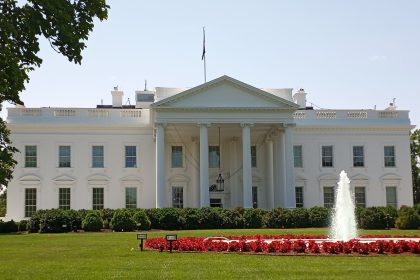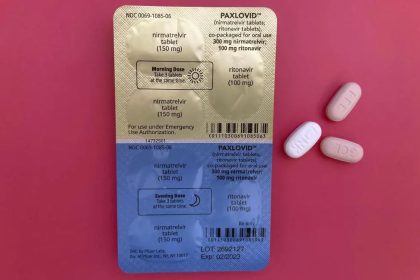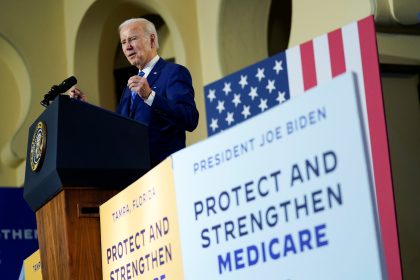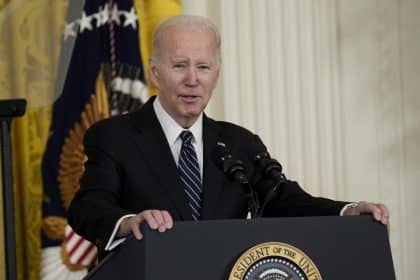Medicare Doesn’t Cover Dental Care. For Many in Florida, That’s a Problem

MIAMI — Sonia Domínguez, 74, and her husband, Miguel Morejón, 81, can’t recall the last time they’ve seen a dentist in Miami, the city they’ve called home for more than two decades.
“It may have been around three, four years ago,” said Domínguez. “Probably more.”
At issue isn’t a lack of dental problems, but a lack of coverage.
After working their entire lives — mostly at a laundromat — Domínguez and Morejón, from the Dominican Republic and Cuba, respectively, are now retired and rely on Medicare to access health services. But as the pair was surprised to find out, their Medicare coverage does not include dental care.
The alternative, paying for procedures out-of-pocket — even for straightforward ones like routine cleanings — isn’t financially viable.
“It’s way too expensive for us. Way too expensive for people who are retired. And it’s not that we don’t have health insurance, because we do,” said Domínguez.
The last time Domínguez needed to get dental work done, she packed her bags and traveled to her native Santo Domingo, where she saw a local dentist for a fraction of the price it would have cost in Miami.
“You have to make sacrifices. You have to travel. And all of that gets more and more difficult with age. That’s something that’s really wrong about the system here,” she said.
Given the conversations she has with friends and acquaintances her age at neighborhood meal centers, Domínguez knows she and her husband are far from the only ones hindered by a lack of access to dental care.
“We get together and I tell them, ‘Oh, look at the state of your teeth.’ And they tell me, ‘It’s too expensive, too expensive (to do anything about it),’” she said.
When it comes to oral health, Medicare, the federal health insurance program for people who are 65 and older, covers only a small number of medically necessary, nonroutine procedures.
Though some can access dental benefits through supplemental options like Advantage plans, all routine preventive or restorative procedures are excluded from original Medicare, save for some limited circumstances during hospitalization.
Spotty coverage — combined with high oral health costs — means many older adults like Domínguez and Morejón have no path to getting dental care. According to Justice in Aging, a national non-profit legal advocacy organization, only half of all 60 million Medicare beneficiaries saw a dental provider in the past year.
That’s a particularly salient problem for Florida, given the local demography.
The state has the second-highest number of Medicare recipients in the country. And within Florida, the county with the largest number of adult residents over the age of 60, at around 500,000, is Miami-Dade. (At a recent policy forum on the needs of elderly residents, it was noted that the county’s population has already “tipped,” meaning there are more folks aged 60 and above than children under 17).
Compounding seniors’ dental care plight in Florida and across the nation is a trend that seems positive on paper: nowadays, more and more older adults still have most of their teeth, according to University of Florida College of Dentistry professor Scott Tomar.
“That’s kind of unprecedented in U.S. history, for this large a percentage of people to reach age 65 and over with most of their teeth still in their mouth. In generations past, the vast majority had full dentures by age 65,” he said. “We are seeing a very, very different type of older adult now compared to past generations. It’s good news that people are making it to their senior years with most of their teeth. But the downside is that we need that much more preventive and restorative care for older adults, which we as a society are not yet prepared to deliver.”
As Tomar explained, older adults with relatively intact sets of teeth have an additional vulnerability to worry about: side effects from medications taken to address chronic illnesses.
“A number of these drugs reduce saliva flow, which increases the risk for tooth decay,” he said. “So it’s almost like a perfect storm in the making, what with the avalanche of older adults, baby boomers, who are now reaching retirement with more teeth than any group 65 and over ever.”
Upping the stakes for older adults without access to dental care is that oral health problems can snowball into significant, even life-threatening conditions, including cardiovascular disease.
“When we speak with older adults, lack of access to dental care is very much top of mind for them,” said Jennifer Goldberg, deputy director at Justice in Aging. “And that lack of access to dental coverage has a disparate impact on populations of color.”
In a recent report, Justice in Aging mapped out the extent of those disparities. It found that seven out of 10 black Medicare beneficiaries and six out of 10 Hispanic beneficiaries did not see a dentist in the last year, compared to just four out of 10 white beneficiaries.
Discrepancies in access to care led to discrepancies in health outcomes, with older adults of color being more prone to untreated tooth decay and complete tooth loss. That includes, for instance, Mexican-American older adults. Over one third of them have untreated tooth decay, compared to just 13% of their white counterparts.
“The numbers are just staggering,” said Goldberg. “And part of this is we know disparities by race and ethnicity are worse for older adults because the disparities that they have experienced throughout their lives compound once they get to older age.”
When it comes to addressing those disparities in oral health access and outcomes for older adults, Goldberg said adding a dental benefit to Medicare is “certainly the most important thing we can do.”
There’s evidence to back that up. As noted in the Justice for Aging report, the data available for dental coverage under the Medicaid program for children shows that having insurance can indeed eliminate oral health disparities based on race (no similar studies have been conducted looking at adults).
Earlier this month, House Democrats passed a bill that would incorporate dental — as well as vision and hearing coverage — into original Medicare.
The bill, H.R. 3, would let Medicare beneficiaries access preventive and screening dental services, including oral exams and cleanings, starting in 2025. Patients would be responsible for covering 20% of the cost of those exams, as well as that of other basic procedures such as extractions and tooth restorations. Major treatments would also be covered, but patients would have to pay a greater percentage of their cost.
After clearing the House, H.R. 3 now faces long odds in the Senate, where a GOP majority is unlikely to take it up.
In the meantime, Morejón, Domínguez’s 81-year-old husband, is feeling some tooth pain and needs to see a dentist.
“It’ll be a matter of waiting a couple of months before going back to Santo Domingo,” said Domínguez with a sigh. She hopes the tooth won’t fall before then. “It’s embarrassing to smile and have people notice that a tooth is missing.”
———
©2019 Miami Herald
Visit Miami Herald at www.miamiherald.com
Distributed by Tribune Content Agency, LLC.























